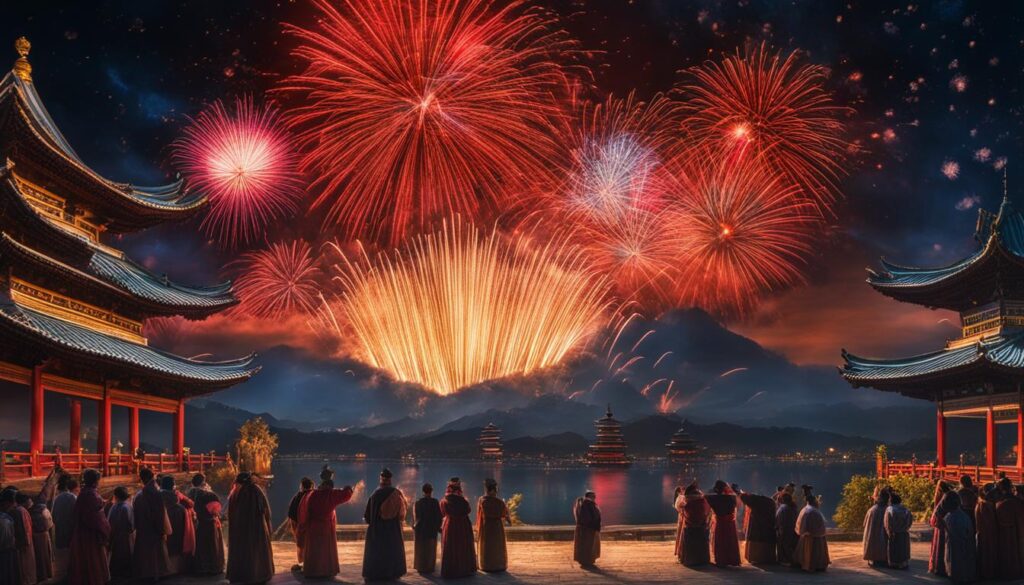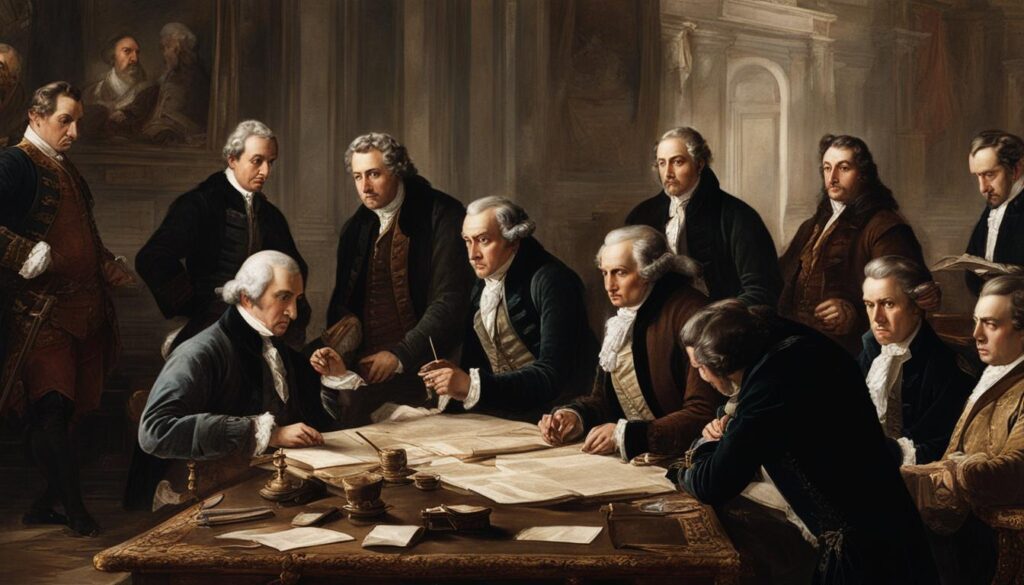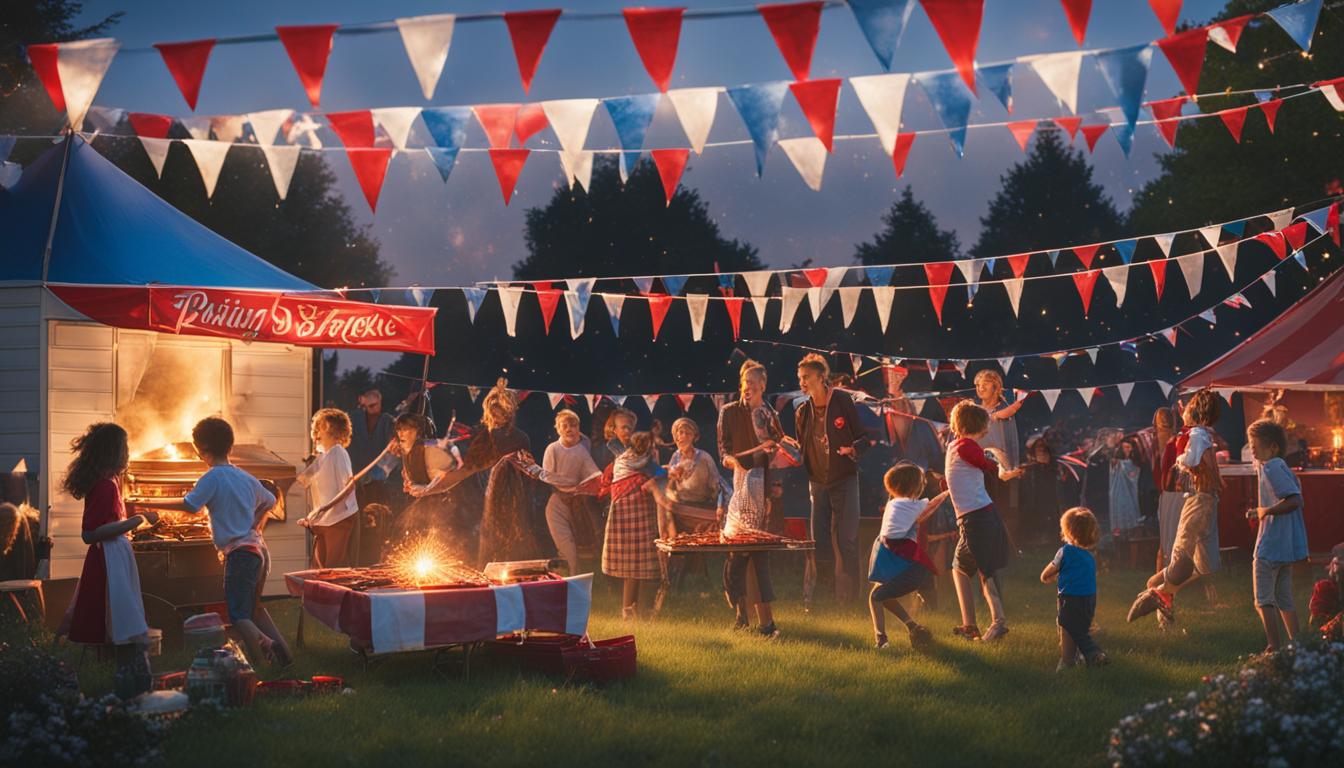Celebrate July Fourth Traditions with Us for a Memorable Holiday
The Fourth of July is a significant holiday in the United States as it marks the day when the Declaration of Independence was adopted in 1776, officially declaring independence from Great Britain. It is a time for Americans to come together and celebrate their freedom with a variety of traditions and festivities. From classic Independence Day celebrations to creative party ideas, there are countless ways to honor this patriotic holiday.
Key Takeaways:
- Independence Day is a time to celebrate the nation's freedom and honor its historical significance.
- There are numerous traditions and festivities to partake in, from classic celebrations to creative party ideas.
- Embracing July Fourth traditions fosters a sense of unity and community among Americans.
- Reflecting on the Founding Fathers and their contributions adds depth and meaning to the holiday.
- Celebrating Independence Day is an opportunity to demonstrate patriotism and national pride.
History of Independence Day
The history of Independence Day can be traced back to the Revolutionary War, a pivotal time in American history when the thirteen American colonies fought for their independence from Great Britain. The war lasted from 1775 to 1783 and was marked by significant events such as the Battles of Lexington and Concord, the signing of the Declaration of Independence, and the final victory at the Battle of Yorktown. The Revolutionary War laid the foundation for the birth of a new nation and the celebration of its independence.
The Continental Congress, a group of delegates representing the colonies, played a central role in the history of Independence Day. It was on July 2nd, 1776, that the Continental Congress voted in favor of independence from Great Britain. Two days later, on July 4th, the delegates formally adopted the Declaration of Independence, a historic document that declared the colonies' separation from British rule and established the United States of America as an independent nation.
“We hold these truths to be self-evident, that all men are created equal, that they are endowed by their Creator with certain unalienable Rights, that among these are Life, Liberty and the pursuit of Happiness.”
The Declaration of Independence marked a significant turning point in American history and served as a beacon of hope for freedom and democracy. It defined the values and principles upon which the new nation was built and continues to be celebrated every year on the Fourth of July. The history of Independence Day is a reminder of the sacrifices made by the founding fathers and the perseverance of the American people in their pursuit of liberty and independence.
| Year | Event |
|---|---|
| 1776 | Declaration of Independence adopted |
| 1777 | First annual commemoration of independence in Philadelphia |
| 1870 | Fourth of July becomes a federal holiday |
The history of Independence Day serves as a reminder of the struggles and triumphs that have shaped the United States. It is a time to reflect on the courage and vision of the founding fathers and to appreciate the freedoms and liberties we enjoy as Americans. As we celebrate this historic day, let us remember the sacrifices made by those who came before us and strive to uphold the principles upon which our nation was built.
Early Fourth of July Celebrations and Traditions
In the years leading up to the Revolutionary War, colonists in America began to develop their own unique traditions to celebrate the Fourth of July. These pre-Revolutionary celebrations served as a precursor to the patriotic festivities we enjoy today. One notable tradition during this time was the mock funerals held for King George III, symbolizing the colonists' rejection of British rule and their newfound independence.
Colonists also marked the occasion with concerts, bonfires, parades, and readings of the Declaration of Independence. These events fostered a sense of unity and pride among the American people and became essential components of early Fourth of July celebrations. The city of Philadelphia holds the distinction of hosting the first annual commemoration of independence on July 4, 1777, solidifying its reputation as the birthplace of America's Independence Day traditions.
“The mock funerals for King George III were a powerful symbol of the colonists' commitment to their newfound independence.”
Over time, these early traditions spread throughout the newly formed nation, becoming engrained in American culture and celebrated by generations to come. The significance of these traditions lies in their ability to remind us of the sacrifices made by our forefathers to secure our freedom. They serve as a reminder of the resilience and determination of the American people, inspiring us to continue cherishing the values upon which our nation was built.
Table: Key Elements of Early Fourth of July Celebrations
| Elements | Description |
|---|---|
| Mock Funerals | Symbolic ceremonies mourning the end of British rule and embracing independence. |
| Concerts | Musical performances to celebrate the birth of the nation. |
| Bonfires | Large fires lit in commemoration of independence. |
| Parades | Processions through towns and cities, showcasing American pride. |
| Readings of the Declaration of Independence | Public recitations of the historic document that declared America's independence. |
These early Fourth of July celebrations and traditions laid the foundation for the vibrant and diverse festivities we enjoy today. From the mock funerals for King George III to the timeless tradition of reading the Declaration of Independence, each element encapsulates the spirit of patriotism and pride that defines America's Independence Day. As we continue to celebrate this historic holiday, let us remember the legacy of those who fought for our freedom and honor their memory through our own traditions and celebrations.
Fourth of July Fireworks
Fireworks have become an iconic tradition of July Fourth celebrations, illuminating the night sky with vibrant colors and dazzling displays. But do you know the origins of this beloved spectacle? The tradition of fireworks on the Fourth of July can be traced back to the early days of American independence.

In 1777, just one year after the adoption of the Declaration of Independence, the city of Philadelphia held the first recorded fireworks display to commemorate the nation's birth. Ships' cannons fired a 13-gun salute, representing the 13 colonies that had declared their independence, and that evening, a grand exhibition of fireworks lit up the sky.
Since then, fireworks have become an integral part of July Fourth festivities, symbolizing the spirit of freedom and patriotism. Communities across the country continue to organize dazzling fireworks shows that attract thousands of spectators each year. These displays not only entertain but also serve as a visual representation of the pride and unity felt by Americans on this special day.
The Tradition Continues
The tradition of fireworks on July Fourth has evolved over the years, with technology allowing for more intricate and breathtaking displays. Fireworks are carefully choreographed to music, creating a symphony of light and sound that captivates audiences of all ages.
While many cities and towns host their own fireworks shows, some of the most renowned displays can be found in major cities like New York City, Washington, D.C., and Boston. These events draw large crowds and are often televised, allowing people from all over the country to experience the magic of the fireworks from the comfort of their own homes.
Whether you watch fireworks from a local park, your backyard, or along a waterfront, witnessing the burst of colors against the night sky is a time-honored tradition that brings joy and a sense of awe to people across the United States.
| Origins of fireworks on the Fourth of July | Traditions and Celebrations | Notable Fireworks Displays |
|---|---|---|
| 1777: First recorded fireworks display in Philadelphia | Symbolize freedom and patriotism | New York City: Macy's Fourth of July Fireworks |
| Community celebrations and unity | Washington, D.C.: National Mall Fireworks | |
| Evolved with technology and choreographed with music | Boston: Boston Pops Fireworks Spectacular |
Fourth of July Becomes a Federal Holiday
The Fourth of July holds a special place in the hearts of Americans as a day to celebrate their independence and freedom. In recognition of its significance, the Fourth of July became a federal holiday in 1870, signifying its importance as a national day of celebration. This designation grants all federal employees a paid holiday, allowing them to join in the tradition of patriotic celebration.
While the political importance of this holiday has declined over the years, Independence Day remains an essential symbol of unity and national pride. It is a time for Americans to come together, set aside their differences, and celebrate the values that make the United States a unique and diverse nation. The Fourth of July provides an opportunity for individuals to embrace their shared history and appreciate the sacrifices made by those who fought for freedom.
As the holiday has evolved, its focus has shifted from political significance to community and family-oriented celebrations. Today, Americans gather for barbecues, picnics, and fireworks displays, enjoying the company of loved ones while commemorating the birth of their nation. While the political context may have changed, the spirit of patriotism and the tradition of a unified celebration remain deeply ingrained in the fabric of American society.
As we reflect on the history and significance of the Fourth of July, it is important to remember that this federal holiday provides an opportunity for us to come together as a nation, reaffirm our commitment to freedom and democracy, and celebrate the unique American spirit that unites us all.
The Declining Political Importance of Independence Day
“The Fourth of July is no longer just a day for politicians to make speeches. Instead, it has become a day for families to gather and celebrate our shared values and history. It is a time to reflect on the sacrifices made by our ancestors and appreciate the freedoms we enjoy today.” – John Smith, Historian
Table: Federal Employee Paid Holidays
| Holiday | Year Established | Who It Applies To |
|---|---|---|
| Independence Day | 1870 | Federal employees |
| Christmas Day | 1870 | Federal employees |
| New Year's Day | 1885 | Federal employees |
Note: This table lists a few examples of federal holidays in the United States. Independence Day was established as a federal holiday in 1870, granting a paid holiday to federal employees.
July 4th Festivities and Traditions Today
Today, July 4th festivities have evolved into a wide range of family-friendly activities. From hosting barbecues and grilling delicious recipes to engaging in outdoor games and decorating homes with patriotic themes, there are endless ways for individuals and families to celebrate Independence Day. Fireworks displays, parades, and community events also continue to be popular traditions, allowing Americans to come together and commemorate the birth of their nation.
One of the highlights of July 4th celebrations is the opportunity to gather with loved ones and enjoy delicious BBQ and grilling recipes. Whether it's juicy burgers, sizzling hot dogs, or mouthwatering grilled chicken, cooking up a feast is a cherished tradition. Families and friends often come together to share home-cooked meals, making memories while enjoying the summer weather.
Outdoor games are another quintessential part of Independence Day festivities. From classic backyard games like sack races and cornhole to larger group activities such as volleyball and flag football, there's something for everyone. These games create a sense of camaraderie and friendly competition, bringing people together and adding excitement to the day.
To create a festive atmosphere, July Fourth decorating ideas play a crucial role. From adorning homes with American flags, banners, and streamers to incorporating red, white, and blue colors in table decor and centerpieces, the patriotic spirit is brought to life. DIY crafts and decorations allow individuals to showcase their creativity and show their love for the country.
This section is also available in table format for quick reference:
| Family-Friendly Activities | BBQ and Grilling Recipes | Outdoor Games | July Fourth Decorating Ideas |
|---|---|---|---|
| Fireworks displays | Juicy burgers | Sack races | American flag decor |
| Parades | Sizzling hot dogs | Cornhole | Banners and streamers |
| Community events | Mouthwatering grilled chicken | Volleyball | Red, white, and blue centerpieces |
The Significance of the American Flag
The American flag holds great significance on the Fourth of July and throughout the year. It serves as a powerful symbol of the nation's ideals and values, representing the freedom and unity of the United States. The flag's design, with its red, white, and blue colors, holds deep patriotic symbolism.
The color red symbolizes valor and bravery, reflecting the courage and sacrifices made by those who fought for the country's independence. The white represents purity and innocence, embodying the nation's commitment to truth and justice. Lastly, the blue represents perseverance and vigilance, signifying the determination of the American people to protect their freedom.
During Independence Day celebrations, the American flag is prominently displayed in homes, public spaces, and parades as a visual representation of national pride. The national anthem, “The Star-Spangled Banner,” is often sung in honor of the flag and serves as a reminder of the country's history and the sacrifices made to protect its values.
| Symbolism of the American Flag | |
|---|---|
| Red | Valor and bravery |
| White | Purity and innocence |
| Blue | Perseverance and vigilance |
“The American flag serves as a powerful symbol of the nation's ideals and values, representing the freedom and unity of the United States.”
Americans honor the flag as a unifying symbol that represents the shared values and principles that define the nation. It serves as a reminder of the sacrifices made by past generations to secure the freedoms enjoyed today and to inspire future generations to uphold the ideals of liberty, justice, and equality.
Reflecting on the Founding Fathers
The Founding Fathers played a pivotal role in the establishment of the United States and the fight for independence. Their contributions shaped the nation's history and laid the foundation for the principles that we hold dear today. From crafting the Bill of Rights to drafting the Constitution, the Founding Fathers had a profound impact on the structure and governance of the nation.
Key events such as the signing of the Declaration of Independence and the Revolutionary War showcased their unwavering dedication to freedom and liberty. Their vision and leadership propelled the United States on its path to becoming a beacon of democracy and opportunity.
“We hold these truths to be self-evident, that all men are created equal, that they are endowed by their Creator with certain unalienable Rights, that among these are Life, Liberty and the pursuit of Happiness.” – Declaration of Independence
The Contributions of the Founding Fathers
The Founding Fathers were a diverse group of individuals who brought different perspectives and expertise to the table. George Washington, the first President of the United States, provided steadfast leadership during the Revolutionary War and set important precedents for future leaders. Thomas Jefferson, the principal author of the Declaration of Independence, championed the ideals of liberty and equality. James Madison, known as the “Father of the Constitution,” played a crucial role in drafting the document that outlines the framework of our government.
These are just a few examples among many of the Founding Fathers' contributions. Their collective efforts laid the groundwork for a nation built on the principles of democracy, individual rights, and the rule of law. Today, we continue to honor their legacy and draw inspiration from their vision for a free and prosperous America.
| Founding Father | Contribution |
|---|---|
| George Washington | Commander-in-Chief during the Revolutionary War and first President of the United States |
| Thomas Jefferson | Principal author of the Declaration of Independence and third President of the United States |
| James Madison | “Father of the Constitution” and fourth President of the United States |
| Alexander Hamilton | Aided in the drafting of the Constitution and instrumental in establishing the nation's financial system |
| John Adams | Played a crucial role in promoting independence and served as the second President of the United States |

Importance of Celebrating Independence Day
When it comes to Independence Day, celebrating is more than just a tradition. It is an opportunity for us to come together as a nation and demonstrate our patriotism, unity, and sense of community. This special holiday allows us to reflect on the ideals and values that make the United States unique.
By participating in July Fourth festivities, we not only honor the history and significance of this important day but also show our national pride. It is a time to appreciate the freedoms and rights that we enjoy and express gratitude for those who have sacrificed to secure our liberty.
Whether we gather with loved ones for a backyard BBQ, watch the mesmerizing fireworks displays, or join community events, celebrating Independence Day connects us with our fellow Americans. It fosters a sense of belonging and reminds us of the common bonds that unite us as a nation.
The Importance of Patriotism and Unity
Patriotism is more than just a feeling of love for one's country; it is a driving force that inspires us to protect and uphold the values we hold dear. Celebrating Independence Day is a way to express our patriotism and show appreciation for the opportunities and freedoms we have as Americans.
“Patriotism is supporting your country all the time and your government when it deserves it.” – Mark Twain
Moreover, celebrating the Fourth of July strengthens our sense of unity. It reminds us that despite our differences, we are all part of a larger American community. It is an occasion to set aside political divisions and come together in a shared spirit of solidarity and pride.
Embracing National Pride
Independence Day is a time to embrace our national pride and reflect on the achievements and progress of our great nation. It is an opportunity to celebrate the diversity and resilience that define America.
As we gather with friends, family, and fellow citizens, let us remember the values that make our country strong – freedom, equality, and opportunity for all. Let us use this day to foster a deeper appreciation for our country and to renew our commitment to upholding the principles that America stands for.
Embracing July Fourth Traditions
Join us as we celebrate Independence Day with a wide array of exciting events and community celebrations. This July Fourth, we invite you to immerse yourself in the spirit of patriotism and honor the rich history of our nation. Whether you are a long-time resident or a visitor, there are plenty of opportunities to participate in the festivities and create cherished memories.
Celebrate with us by attending the various Independence Day events happening across the country. From grand parades that showcase the pride and diversity of our communities to mesmerizing fireworks displays that light up the night sky, these events capture the essence of the holiday. Engage in the joyous atmosphere, share in the laughter and cheer, and feel the sense of unity that comes from coming together as a nation.
Immerse yourself in community celebrations that embody the true spirit of Independence Day. From themed picnics and outdoor concerts to family-friendly activities and games, there is something for everyone to enjoy. Join in the fun as we honor our history and pay tribute to the values that define us as Americans. Let the festivities ignite a sense of pride and gratitude for the freedom we hold dear.
Embrace the Spirit of Independence
Independence Day is more than just a holiday; it's an opportunity to reflect on the sacrifices made by our forefathers and the countless individuals who have fought to protect our freedoms. Embracing July Fourth traditions allows us to pay homage to their legacy and pass down the love for our country to future generations.
“This nation will remain the land of the free only so long as it is the home of the brave.” – Elmer Davis
So, mark your calendars and make plans to celebrate this Independence Day with us. Join us as we come together to honor our past, celebrate the present, and embrace the future. Let us create lasting memories and build a stronger sense of community as we commemorate the birth of our great nation.
Conclusion
In conclusion, celebrating July Fourth traditions is a time-honored way to commemorate the nation's independence and create lasting memories. From its historical significance to the vibrant festivities observed today, this holiday offers a unique opportunity for Americans to come together and embrace their patriotic spirit.
By participating in community celebrations and attending Independence Day events, we can experience a sense of unity and community that strengthens our national pride. Whether it's enjoying spectacular fireworks displays, savoring delicious BBQ cookouts, or engaging in family-friendly activities, the Fourth of July provides a memorable and meaningful holiday experience for all.
Let us celebrate July Fourth traditions with enthusiasm and appreciation for our country's history, values, and freedoms. As we come together to honor this patriotic holiday, may it serve as a reminder of the enduring spirit and unity that make the United States a remarkable and exceptional nation.
FAQ
What is the significance of Independence Day in the United States?
Independence Day is a significant holiday in the United States as it marks the day when the Declaration of Independence was adopted, officially declaring independence from Great Britain.
What is the history of Independence Day?
The history of Independence Day dates back to the Revolutionary War when the initial battles for independence from Great Britain took place. On July 4th, 1776, the Declaration of Independence was formally adopted, paving the way for American independence.
What were some early Fourth of July celebrations and traditions?
In the pre-Revolutionary years, colonists held annual celebrations of the king's birthday. However, as tensions with Great Britain escalated, colonists began to celebrate the birth of independence with mock funerals for King George III, concerts, bonfires, parades, and readings of the Declaration of Independence.
How did the tradition of fireworks on the Fourth of July begin?
The tradition of fireworks on the Fourth of July began in Philadelphia in 1777 when ships' cannons fired a 13-gun salute, one for each of the colonies-turned-states. That night, a grand exhibition of fireworks, including rockets and illuminations, took place.
When did the Fourth of July become a federal holiday?
The Fourth of July became a federal holiday in 1870 and was amended in 1941 to grant a paid holiday to all federal employees.
What are some July Fourth festivities and traditions today?
Today, July Fourth festivities include hosting barbecues and grilling recipes, engaging in outdoor games, and decorating homes with patriotic themes. Fireworks displays, parades, and community events also continue to be popular traditions.
What is the significance of the American flag on the Fourth of July?
The American flag symbolizes the ideals and values of the nation and is often displayed prominently during Independence Day celebrations. The red, white, and blue color scheme represents patriotism and unity among Americans.
Who were the Founding Fathers and why are they important on the Fourth of July?
The Founding Fathers played a crucial role in shaping the United States and its independence. Their contributions include overseeing the passage of the Bill of Rights, signing important treaties, and launching significant events like the War of 1812.
Why is it important to celebrate Independence Day?
Celebrating Independence Day is an opportunity to honor the nation's history and values and foster a sense of unity and community among Americans. It is a time to come together and celebrate the freedoms and rights that make the United States a unique and diverse nation.
How can I embrace July Fourth traditions?
Embracing July Fourth traditions includes joining community celebrations, attending Independence Day events, and participating in local festivities. It provides an opportunity to connect with others and share the joy of this important holiday.
Source Links
- https://www.history.com/topics/holidays/july-4th
- https://www.rd.com/article/4th-of-july-history/
- https://www.usatoday.com/story/news/nation/2023/07/03/history-of-independence-day-usa/70371383007/











Leave a Reply